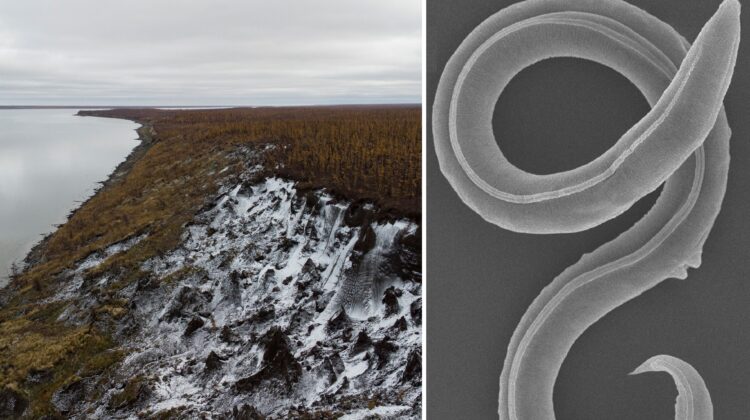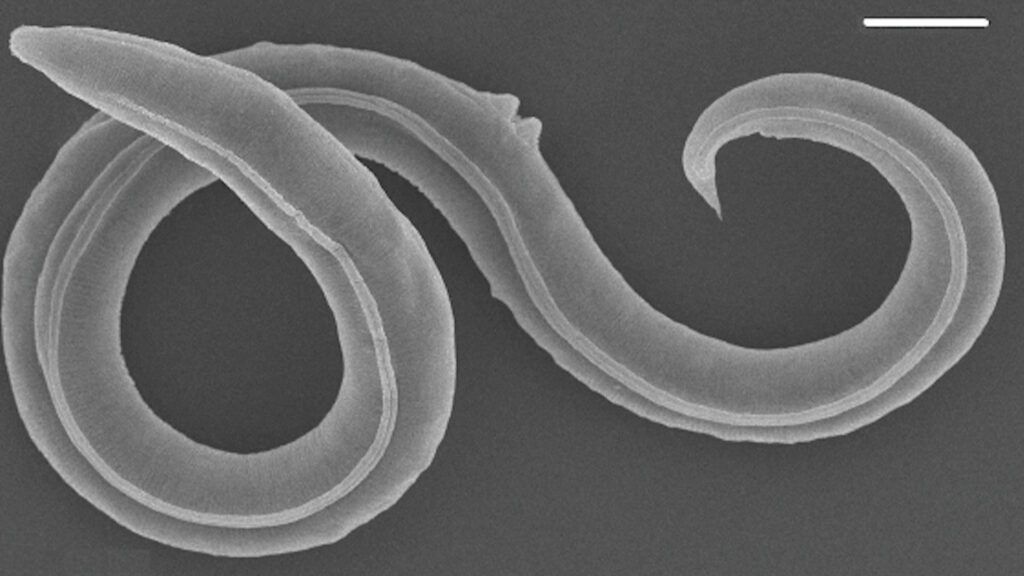
Scientists have accomplished an astonishing feat by reviving roundworms that were in a state of suspended animation for a remarkable 46,000 years. These nematodes were extracted from the Siberian permafrost, residing 40 meters below the surface, where they endured freezing temperatures while maintaining a dormant metabolic state known as cryptobiosis.

By gently thawing these ancient creatures, researchers successfully witnessed their revival, as the roundworms displayed movement, feeding, and even reproduction. One worm was bred in a lab for 100 generations, demonstrating their resilience in reproducing without male partners.

This study builds on prior research from 2018, refining the age estimate to 46,000 years using radiocarbon dating of plant material. Genetic analysis also revealed a new species within the Panagrolaimus genus, named Panagrolaimus kolymaensis after the Kolyma River near its discovery site.

These findings have far-reaching implications for understanding evolutionary processes and survival mechanisms. While skepticism exists, these awakened roundworms offer insights into species adaptation in the face of extreme conditions. As global temperatures rise, such knowledge could prove invaluable for modern species facing unprecedented challenges.

Leave a Reply